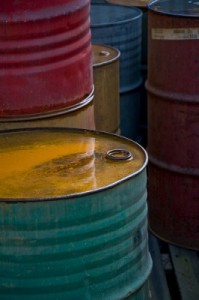According to president and founder of the Eurasia Group, Ian Bremmer, a scenario where the Organization of the Petroleum Exporting Countries (OPEC) loses leverage on oil pricing in 2014 is likely. Bremmer claims that increased oil production in Libya, Iraq, and the recent shale oil revolution in the U.S. paralleled alongside a long-term nuclear deal with Iran could cause OPEC’s grip on pricing to “crater” in 2014. As evidence, in light of the deal made by the P5+1 with Iran, oil market prices dropped.
 In the recently published Top Risks 2014 report by the Eurasia Group, the report states:
In the recently published Top Risks 2014 report by the Eurasia Group, the report states:
“Over the past few years, though, disruption events have offset much of the effect of volume growth, limiting the impact on producers. In 2014, this will change, with an acceleration of spare capacity growth, bearish price pressures, and heightened competition among producers more generally.”
The report goes on to suggest that,
“Even with reasonably robust global economic growth, therefore, increased supply will be the key driver of energy markets this year. There’s no prospect of cooperation among the economically strapped and politically fragmented OPEC producers, forcing Saudi Arabia into unilaterally (and acrimoniously) scaling back production to defend price by the end of the first quarter.”
If increased energy supply becomes the key driver of the global energy market in 2014, petro-states like Saudi Arabia will lose some ground they otherwise have maintained. A long-term Iranian deal would result in the restoration of Iranian oil production and reduce OPEC’s control on global oil prices. Bremmer even goes as far as to say the restoration of Iran’s oil production could cause prices to plummet to 80 dollars a barrel and cause OPEC to “fall apart.”
There are many variables that have yet to be decided, including the Iranian sanctions legislation that the U.S. Senate is currently deliberating. It is ironic that diplomacy in a wildly turbulent region would not only foster greater stability in the Middle East, but also lower global energy prices.
Photo: “Colorful Old Oil Barrels” by L.C.Nøttaasen Licensed by CC BY-SA 2.0
The post OPEC, Iran and the Global Oil Glut? appeared first on American Security Project.


